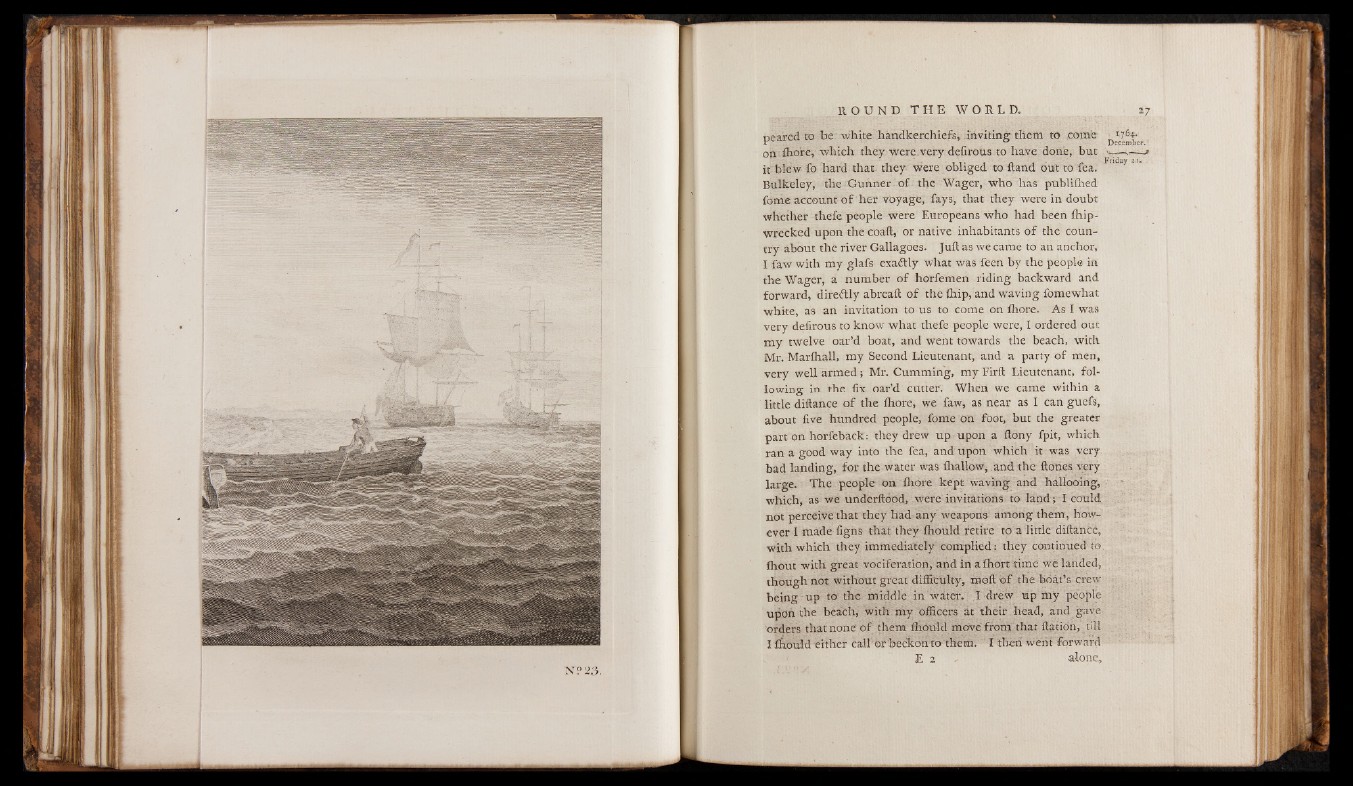
R O U N D T H E W O R L D .
ceared to be white handkerchiefs, anviting them to eom'e
on fhore, which they were very delirous to have done, but — .
it ble w fo hard that th e y were obliged to ftand but to fea. Fndayz''
Bulkeley, the'Gunner of the Wager, who has publiflied
fotne account o f her voyage, fays, that they were in doubt
whether thefe people were Europeans who had been fhip-
wreCked upon the coaft, or native inhabitants o f the country
about the river Gallagoes. Juft as we came to an anchor,
I faw with my glafs exactly what was feen by the people in
the Wager, a number o f horfemen riding backward and
forward, direftly abreaft o f the {hip, and waving fomewhat
white, as an invitation to us to come on fhore. As I was
very defirous to know what thefe people were, I ordered out
my twelve oar’d boat, and went towards the beach, with
Mr. Marlhall, my Second Lieutenant, and a party of men,
very well armed; Mr. Cumming, my Firft Lieutenant, following
in the fix oar’d cutter. When we came within a
little diftance o f the fhore, we faw, as near as I can guefs,
about five hundred people, fome on foot, but the greater
part on horfeback: they drew up upon a ftony fpit, which
ran a good way into the fea, and upon which it was very
bad landing, for the water was fhallow, and the ftoties very
large. The people on fhore kept waving and hallooing,
which, as we underftood, were invitations to land ; I could
not perceive that they had any weapons among them, however
I made figns that they fhould retire to a little diftance,
with which they immediately complied: they continued to,
fhout with great vociferation, and in afhort time we landed,
though not without great difficulty, xnoftof the boat’s crew j
being up to the middle in'water. I drew up my people
upon the beach, with my officers at their head, and gave
’orders that none'of them fhould move from, that ftatidn,uH
1 flhouid either call'or beckon to them. ' I then went forward
E a S alone,